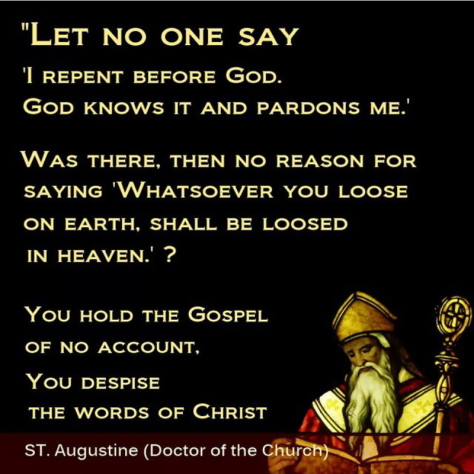How many times have I heard “Jesus was speaking symbolically when he said to eat his body and drink his blood”, The issue on the Eucharist is what mainly separates Protestants from Catholics, so it should be of most importance to meditate on the theology behind this.. let’s take a look:
John 6:30 begins a colloquy that took place in the synagogue at Capernaum. The Jews asked Jesus what sign he could perform so that they might believe in him. As a challenge, they noted that “our ancestors ate manna in the desert.” Could Jesus top that? He told them the real bread from heaven comes from the Father. “Give us this bread always,” they said. Jesus replied, “I am the bread of life; whoever comes to me will never hunger, and whoever believes in me will never thirst.” At this point the Jews understood him to be speaking metaphorically.
Jesus first repeated what he said, then summarized: “‘I am the living bread which came down from heaven; if any one eats of this bread, he will live for ever; and the bread which I shall give for the life of the world is my flesh.’ The Jews then disputed among themselves, saying, ‘How can this man give us his flesh to eat?’” (John 6:51–52).
His listeners were stupefied because now they understood Jesus literally—and correctly. He again repeated his words, but with even greater emphasis, and introduced the statement about drinking his blood: “Truly, truly, I say to you, unless you eat the flesh of the Son of man and drink his blood, you have no life in you; he who eats my flesh and drinks my blood has eternal life, and I will raise him up at the last day. For my flesh is food indeed, and my blood is drink indeed. He who eats my flesh and drinks my blood abides in me, and I in him” (John 6:53–56).
Notice that Jesus made no attempt to soften what he said, no attempt to correct “misunderstandings,” for there were none. Our Lord’s listeners understood him perfectly well. They no longer thought he was speaking metaphorically. If they had, if they mistook what he said, why no correction?
On other occasions when there was confusion, Christ explained just what he meant (cf. Matt. 16:5–12). Here, where any misunderstanding would be fatal, there was no effort by Jesus to correct. Instead, he repeated himself for greater emphasis.
In John 6:60 we read: “Many of his disciples, when they heard it, said, ‘This is a hard saying; who can listen to it?’” These were his disciples, people used to his remarkable ways. He warned them not to think carnally, but spiritually: “It is the Spirit that gives life, the flesh is of no avail; the words that I have spoken to you are spirit and life” (John 6:63; cf. 1 Cor. 2:12–14).
But he knew some did not believe. (It is here, in the rejection of the Eucharist, that Judas fell away; look at John 6:64.) “After this, many of his disciples drew back and no longer went about with him” (John 6:66).
This is the only record we have of any of Christ’s followers forsaking him for purely doctrinal reasons. If it had all been a misunderstanding, if they erred in taking a metaphor in a literal sense, why didn’t he call them back and straighten things out? Both the Jews, who were suspicious of him, and his disciples, who had accepted everything up to this point, would have remained with him had he said he was speaking only symbolically.
But he did not correct these protesters. Twelve times he said he was the bread that came down from heaven; four times he said they would have “to eat my flesh and drink my blood.” John 6 was an extended promise of what would be instituted at the Last Supper—and it was a promise that could not be more explicit.
He continues: “As the living Father sent me, and I live because of the Father, so he who eats me will live because of me” (John 6:57). The Greek word used for “eats” (trogon) is very blunt and has the sense of “chewing” or “gnawing.” This is not the language of metaphor.
Paul wrote to the Corinthians: “The cup of blessing which we bless, is it not a participation in the blood of Christ? The bread which we break, is it not a participation in the body of Christ?” (1 Cor. 10:16). So when we receive Communion, we actually participate in the body and blood of Christ, not just eat symbols of them. Paul also said, “Therefore whoever eats the bread and drinks the cup of the Lord unworthily will have to answer for the body and blood of the Lord. . . . For any one who eats and drinks without discerning the body, eats and drinks judgment on himself” (1 Cor. 11:27, 29). “To answer for the body and blood” of someone meant to be guilty of a crime as serious as homicide. How could eating mere bread and wine “unworthily” be so serious? Paul’s comment makes sense only if the bread and wine became the real body and blood of Christ.










